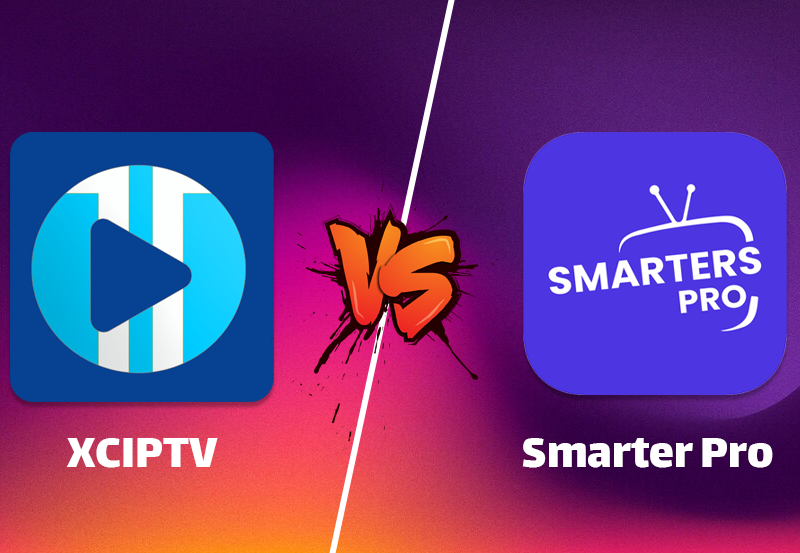Television has seen numerous revolutions over the decades—from black and white to color, from cable to streaming. As we move into a new era, lazy IPTV is poised to redefine how we consume content, offering not just convenience but a shift in control over what we watch and when we watch it. Let’s explore the potential ripple effects of this technology on the future of television.
The Rise of IPTV Services: A New Era in Television
Understanding IPTV Services
Internet Protocol Television (IPTV) is rapidly becoming a staple in households worldwide. Unlike traditional broadcast methods, IPTV delivers content through the internet, providing flexibility that standard cable and satellite services simply can’t match. By leveraging your internet connection, IPTV service for firestick users, in particular, can access a plethora of channels and shows without the hassle of cumbersome installations.
This technology empowers viewers to choose what they want to watch from a vast library of content. With options to pause, rewind, or fast forward, it brings a level of interactivity that traditional TV lacks. The global trend is clear: more consumers are opting for IPTV over conventional TV subscriptions.
Pro Insight:
Stream seamlessly across devices with IPTV service in Canada, offering unmatched stability and content variety.
IPTV Subscription Plans: Tailoring Entertainment to Your Tastes
Diverse IPTV subscription plans cater to different viewing habits, making it easy for consumers to select a package that meets their needs. Whether it’s news junkies, movie buffs, or sports fans, there’s a plan for everyone. IPTV providers often offer a la carte services, allowing users to pay solely for the content they’re interested in, rather than bundling unwanted channels.
The cost-effectiveness and customization ability of IPTV services have disrupted traditional TV models. As viewers demand more control over their subscriptions, the future will likely see even more personalized services. This is a stark contrast to the traditional one-size-fits-all approach, revolutionizing content consumption.
Maximizing Your Streaming Delight: Strategies for the Best IPTV Experience
Choosing the Right IPTV Provider
Selecting the right IPTV provider can be daunting given the multitude of options on the market. Key factors to consider include server reliability, customer service, and the breadth of available content. Before committing to a service, it’s wise to read reviews and check trial offers. This ensures you choose a provider that delivers a seamless streaming experience.
With IPTV service for firestick, compatibility is crucial. Many providers design their interfaces to work harmoniously with popular devices like Fire Stick, offering easy navigation and a smooth streaming journey. A poor choice can lead to buffering issues or limited content availability, so do your homework.
Embracing Technological Advancements
One of IPTV’s greatest strengths is its continuous evolution through technological advancements. High-definition and Ultra-HD content are increasingly available, greatly enhancing viewing pleasure. Providers are also investing in artificial intelligence to better tailor recommendations based on viewing history. This personalization promises to elevate user experience exponentially.
The adoption of 5G technology will further revolutionize IPTV services by reducing latency and improving overall quality. This makes IPTV an attractive option for those who want cutting-edge technology and top-notch viewing conditions.
The Future of Television: What Laziness has to do with It
Redefining Convenience
The so-called laziness associated with IPTV doesn’t only refer to easy access; it represents a shift towards more intuitive user interfaces and intelligent content delivery systems. Imagine a TV experience that automatically suggests what to watch based on your mood or current events, requiring less effort on your part to find something enjoyable.
This trend signals a departure from proactive searching to passive consumption. Yet, this isn’t a step back; it’s a step towards smarter entertainment systems that know us almost as well as we know ourselves. As AI becomes more sophisticated, the TV watching experience will continue to evolve.
The Impact on Traditional Broadcasting
The rise of lazy IPTV means that traditional broadcasters need to adapt or risk obsolescence. Many are partnering with IPTV services or developing their own platforms to stay relevant. This convergence of traditional and modern methods indicates a future where television is more blended and versatile than ever before.
However, this transformation isn’t without its challenges. The adoption of IPTV could result in a regulatory grey area where content control and distribution need new guidelines. As a result, broadcasters and regulators must work in tandem to ensure a smooth transition into this new era of television.
Breaking Down Barriers: Global Accessibility and the Role of IPTV
Expanding Reach and Accessibility
One of the most compelling advantages of IPTV is its ability to transcend geographic boundaries. Consumers in different regions can access the same content almost simultaneously, breaking down traditional borders that confined broadcasting to specific areas. This global reach enhances cultural exchanges and provides a platform for diverse voices.
IPTV services have managed to bring international content to local screens, empowering viewers to explore new genres and perspectives. This increased accessibility is not just beneficial for viewers but also lucrative for content creators, who can now reach a wider audience than ever before.
Challenges to Overcome
Despite its many advantages, IPTV still faces challenges. Key hurdles include varying levels of internet infrastructure across regions and concerns about content delivery reliability. Not all consumers have access to high-speed internet, which can affect the quality of their streaming experience.
Moreover, there’s the issue of piracy and unauthorized streaming. IPTV services must develop robust solutions to ensure content creators and distributors receive fair compensation for their work. As the sector expands, these challenges will require innovative approaches to maintain IPTV’s growth trajectory.
Shaping Viewer Preferences: Data, Choices, and Control
The Power of Data-Driven Recommendations
Data analytics play a significant role in shaping viewer preferences in the IPTV landscape. By analyzing watching habits, IPTV services can offer targeted recommendations that resonate with individual tastes. This approach is revolutionizing content discovery, making it easier for viewers to find shows and movies they will likely enjoy.
However, this reliance on data also poses privacy concerns. Consumers may be wary of how their data is being used and stored. Transparency and adherence to data protection regulations will be crucial in building trust and fostering long-term customer relationships.
User Control and Personalized Viewing Experiences
The increased control over what, how, and when to watch is a major appeal of IPTV services. This personalization ensures that viewers are less likely to encounter content they are not interested in, making their viewing experiences more fulfilling. As such, the future of television will likely lean heavily into customization, offering packages and plans tailored to fit specific preferences.
By embracing this personalized model, IPTV services can enhance viewer satisfaction and loyalty, ensuring their place in the digital media landscape for years to come.
The Future is Bright: Technological Innovations on the Horizon
Virtual Reality and IPTV
As technology progresses, IPTV is expected to integrate with other groundbreaking technologies like virtual reality (VR). Imagine watching a football match in your living room, transported to the stadium in real-time through VR. This merging of technologies could create an immersive viewing experience far beyond what is possible today.
VR and augmented reality (AR) offer endless possibilities for interactive TV, making it a frontier worth exploring. As these technologies become more affordable and prevalent, the intersection with IPTV could change entertainment forever.
Artificial Intelligence and Content Creation
AI isn’t just for recommendation engines; it stands to revolutionize content creation itself. Automated editing, scriptwriting, and even character development powered by AI are on the horizon, leading to content being produced efficiently at lower costs.
This could democratize content creation, giving rise to new voices and creative ideas. IPTV platforms can benefit from this influx of content, offering viewers more choices and enabling creators to reach their intended audiences more effectively.
FAQs: Answering Common Questions

What are IPTV services for firestick?
IPTV services for firestick allow users to stream content directly on their Amazon Fire Stick devices. This setup provides access to a vast range of TV shows and movies over the internet through various IPTV services.
Are IPTV subscription plans worth it?
Yes, IPTV subscription plans are generally worth it for those who want more control over their viewing options. These plans offer diverse content choices and flexible pricing, often at a lower cost than traditional cable.
How can I maximize my streaming delight with IPTV?
To maximize your streaming delight, choose an IPTV provider that offers reliable service, ample content, and great customer support. Ensuring high-speed internet access and opting for a compatible streaming device can greatly enhance your experience.
What are the potential future advancements in IPTV?
The future advancements in IPTV include integration with VR and AI technologies, enhancing personalized viewing experiences, improved content discovery, and new interactive possibilities.
How secure is my data with IPTV services?
Security can vary across IPTV providers. It’s important to choose reputable services that offer clear privacy policies and data protection measures. Regularly review terms of service and privacy policies to stay informed.
Will IPTV replace traditional cable television?
While IPTV is growing in popularity and poses a significant challenge to traditional cable, it won’t completely replace it overnight. Instead, a hybrid model where both coexist and complement each other is more likely in the foreseeable future.
Maximizing Your Entertainment with Gse IPTV Application





